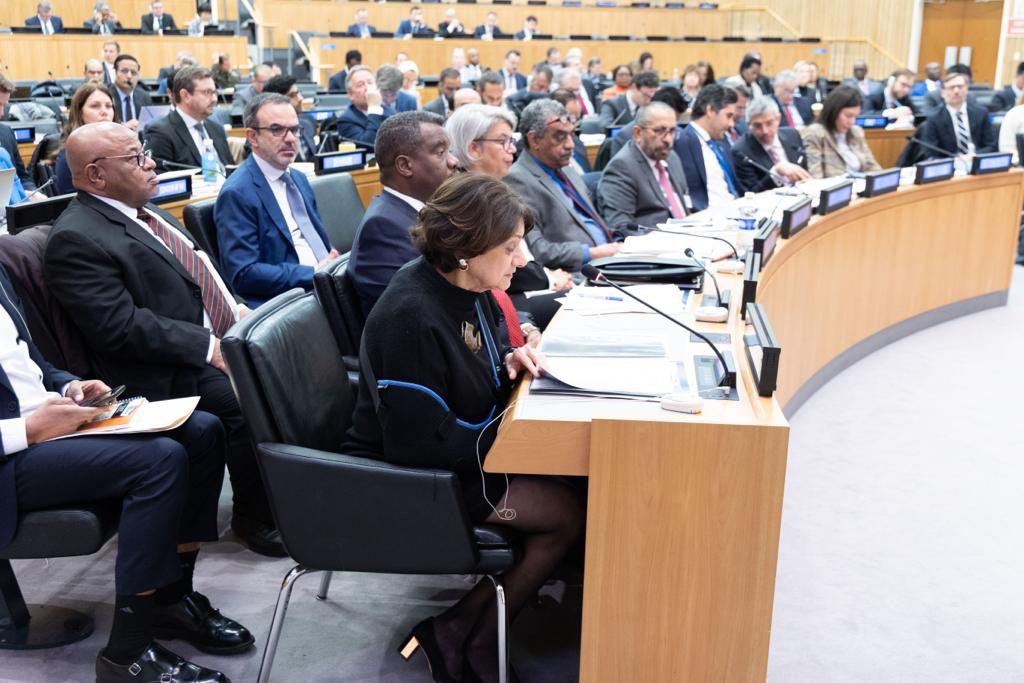Somalia is ready to assume full responsibility for its security, says President Hassan
Somalia’s President Hassan Sheikh Mahamud declared at an international security conference on Somalia in New York today that his nation is prepared to fully assume responsibility for its security.
Somalia’s President Hassan Sheikh Mahamud declared at an international security conference on Somalia in New York today that his nation is prepared to fully assume responsibility for its security.
The Somalia Security Conference, co-hosted by AU, UN, EU, Qatar, Saudi Arabia, Turkey, UAE, UK, USA, and attended by 28 partners, witnessed Hassan unveiling his government's post-ATMIS strategy. He emphasized the tremendous strides in rebuilding the Somali National Army (SNA), the ongoing military offensive against Al-Shabaab, and the removal of the arms embargo.
More To Read
- Mogadishu’s Hamarweyne market shut for third day amid tax dispute
- How to make sweet and savoury plantains at home
- Somalia on high alert as Marburg virus outbreak hits neighbouring Ethiopia
- Mogadishu police, intelligence agents crack down on armed groups after surge in street crime
- Somalia declares drought emergency as millions face hunger after failed rains
- International Rescue Committee warns millions at risk as drought intensifies across Northern Somalia
Hassan emphasized the phased withdrawal of ATMIS troops, set to conclude by December 2024, as a signal of Somalia’s progress and evident of its commitment to building a stable nation with a robust security architecture. The plan calls for simultaneous actions to fortify security gains, enhancing the capabilities of the Somali security sector.
 Delegates at the Somalia Security Conference in New York.
Delegates at the Somalia Security Conference in New York.
Discussions at the conference centered on Somalia's stabilization process, with experts proposing strategies to address security challenges by prioritizing economic stability. These approaches emphasized resource optimization and the development of sustainable financing models.
The conference also tackled aligning international support with government priorities, emphasizing partnerships, improved aid coordination, and external assistance that aligns with government security goals. A key agreement was reached to bolster institutions and processes, integrating aid effectively within the national framework.
Over the past decade, thousands of AU-backed and UN-mandated regional forces from Uganda, Burundi, Ethiopia, Kenya, and Djibouti have played a crucial role in supporting the Somali government and thwarting resurgent Al-Shabaab attacks.
Top Stories Today















































